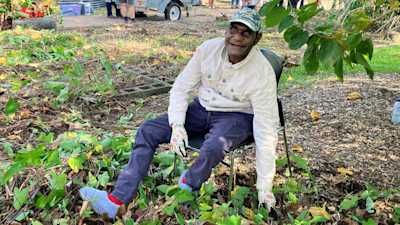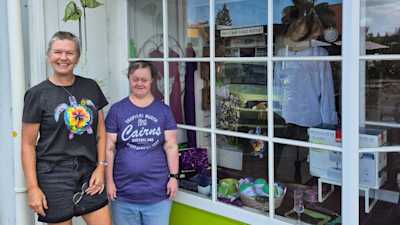In the spirit of International Day of People with Disability, we tackle the biggest myths and misconceptions around what it really means to be a person living with a disability.

Image: Photo by Alireza Attari
People come in all forms, shapes and sizes. As a result, there are many generalisations that have developed over the years, leading to an array of misconceptions and outdated information about people with disability. Here we take a closer look at some of the biggest stigmas that surround the term 'disability', to replace these myths with some much-needed ‘truths’.
Myth: Only a small number of people live with a disability.
Truth: One in five people in Australia have a disability – that’s almost 4 million people! This number is continuing to rise as our population ages, so it is a significant amount of people who deal with the challenges and considerations of living with a disability every day. Myth: Disability means having a condition, disease or impairment that impacts mobility or the senses.
Truth: Not all disabilities are physical or can be seen. In fact, in Australia, there are more disabilities that are non-visible than visible, including mental illnesses, intellectual disabilities and learning disabilities. This means that just because a person may appear to not have a disability, doesn't mean they aren't living with a disability that you cannot see.
There are many different types of disabilities, which according to the Disability Discrimination Act 1992 include:
Physical - affects a person's mobility or dexterity
Intellectual - affects a person's abilities to learn
Mental Illness - affects a person's thinking processes
Sensory - affects a person's ability to hear or see
Neurological – affects the person’s brain and central nervous system,
Learning disability
Physical disfigurement or
Immunological - the presence of organisms causing disease in the body
Myth: People who live with a disability want to be left alone.
Truth: Don’t assume that a person cannot or does not want to be involved in social activities because they have disability. Everyone is different and has their own needs, wants and preferences. Some people may be unsure how to approach a person with a disability because they don’t want to embarrass themselves or others, but there’s no need to avoid or ignore someone just because they have a disability. The important thing is to treat each person with respect, be polite, and respect their wishes.
Myth: People with a disability cannot work.
Truth: People who live with a disability can work if they choose to. We all have different strengths, skills and capacity to learn, and this includes people with disability who have identified that they are willing to enter the workforce. In fact, work can have a very positive impact on people, adding to their financial security, social inclusion, sense of identity and overall wellbeing.
As a signatory of the United Nations Convention on the Rights of People with Disability, Australia recognises the right of people with disabilities to work, on an equal basis. This includes the right to earn a living by working freely in a chosen or accepted work environment that is open, inclusive and accessible to persons with disabilities.
Unfortunately, there is still room for improvement for organisations to employ people with disability so that every person has access to meaningful work.
Myth: “Disability” is a negative word .
Truth: Language around disability can be tricky at times, the key is to focus on the person, not the disability. This is called 'person-centred language' and it is something that our culture should embrace in order to treat all people with dignity and respect.
When you describe someone using a label, such as ‘disabled person’, you lose the chance to see the unique and wonderful characteristics that make them who they are. However, when you use person-centred language your words empower them. With this, the most accepted term in Australia is 'person with disability' and conversely 'person without disability'.
In conclusion, unthink what you think you know about disability. Why not, on this International Day of People with Disability, head along to an event in your community to celebrate and recognise the achievements of people with disability.


